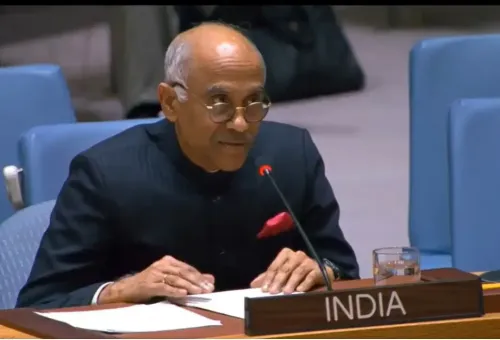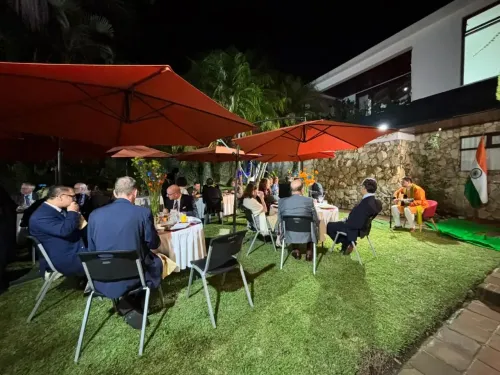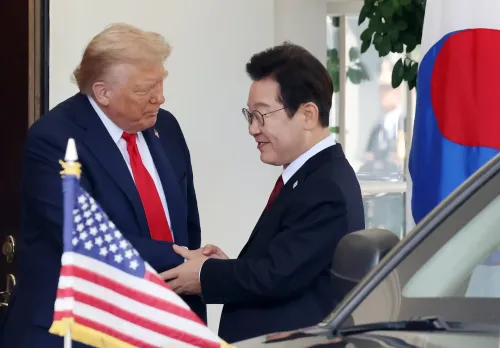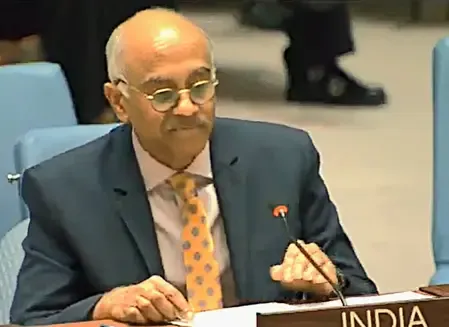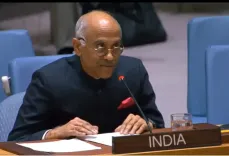Is Trump Really Going to Impose 25% Tariffs on Japan and South Korea Starting August 1?
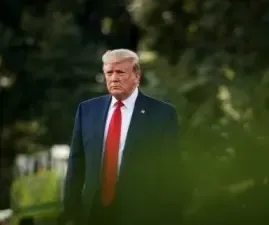
Synopsis
Key Takeaways
- Trump issues a 25% tariff on goods from Japan and South Korea.
- Effective date for tariffs is August 1.
- Retaliation from these countries could lead to higher tariffs.
- Manufacturing in the US can exempt companies from tariffs.
- Negotiations with other nations are ongoing.
Washington, July 7 (NationPress) - US President Donald Trump has begun dispatching tariff notifications to various countries, announcing a 25 percent tariff on imports from Japan and South Korea, effective August 1.
The announcement was made on his social media platform, Truth Social, where he shared the letters sent to both nations.
The correspondence cautioned Japan and South Korea against retaliating with their own increased import duties, warning that such actions would prompt the US to raise tariffs as well.
“Should you choose to elevate your tariffs for any reason, the amount you decide to increase them by will be added to the 25 percent we are imposing,” Trump stated in the letters directed at Japanese Prime Minister Shigeru Ishiba and South Korean President Lee Jae-myung.
“Please note that the 25 percent figure is significantly lower than what is necessary to rectify the trade deficit imbalance we have with your nation,” Trump encouraged, suggesting they consider manufacturing within the United States to avoid tariffs.
“If companies from South Korea or Japan opt to establish production facilities within the United States, there will be no tariffs imposed. We will ensure that the approval process is swift and efficient—typically within weeks,” Trump elaborated.
Trump has hinted at sending additional letters to world leaders ahead of the July 9 deadline, urging nations to negotiate or face the possibility of increased tariffs.
“These tariffs may be adjusted, either up or down, based on our relationship with your country. You will always find the United States of America to be a reliable partner,” he mentioned in the communications with Japan and South Korea.
Meanwhile, Scott Bessent, the US Treasury Secretary, indicated that Washington is nearing agreements on several trade deals, with numerous proposals submitted by various countries at the last moment.
Trump has previously announced several trade agreements, including those with Vietnam and China. He mentioned last month that the US and India might finalize an agreement that would facilitate access for US goods into the Indian market.
A high-ranking official delegation from India, led by chief negotiator Rajesh Agrawal, recently returned from Washington after trade discussions with US officials, but did not achieve a conclusive agreement on crucial issues surrounding agricultural and dairy product trade, which the US is advocating for.

